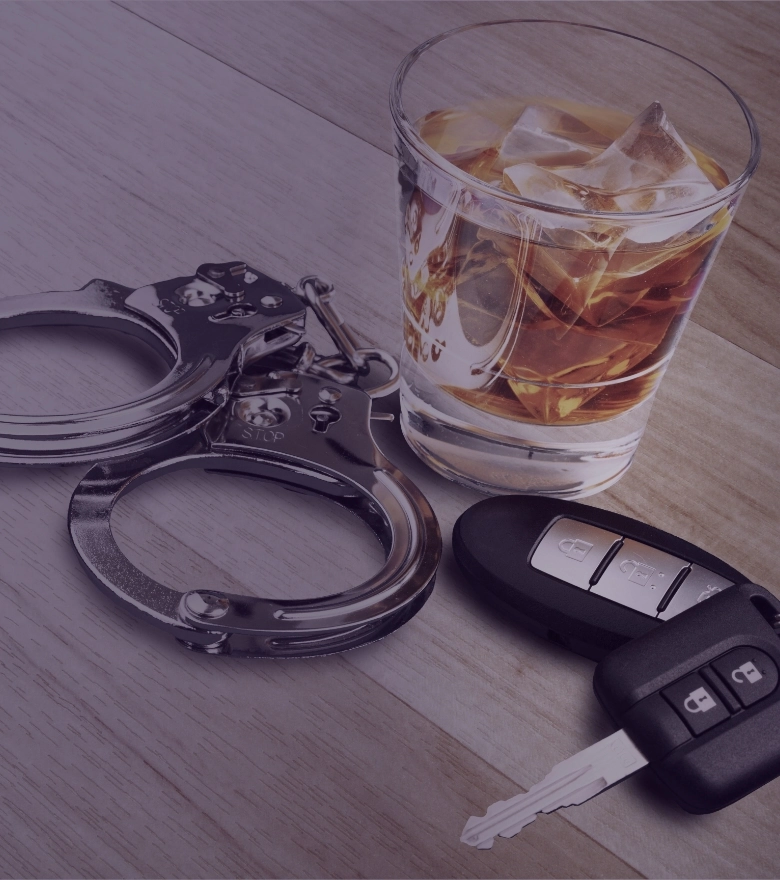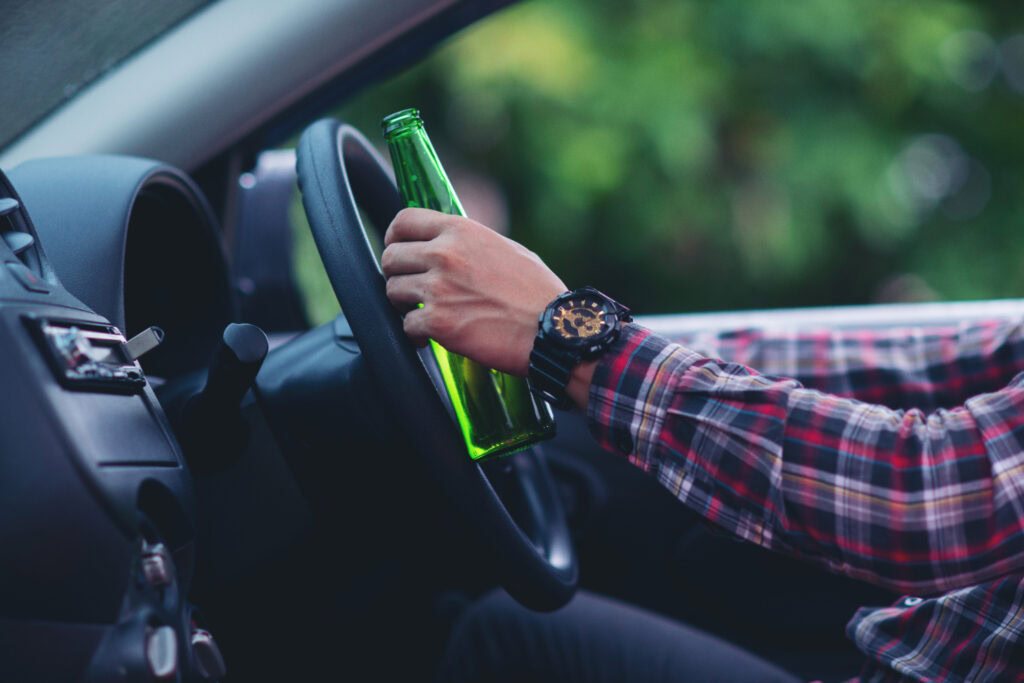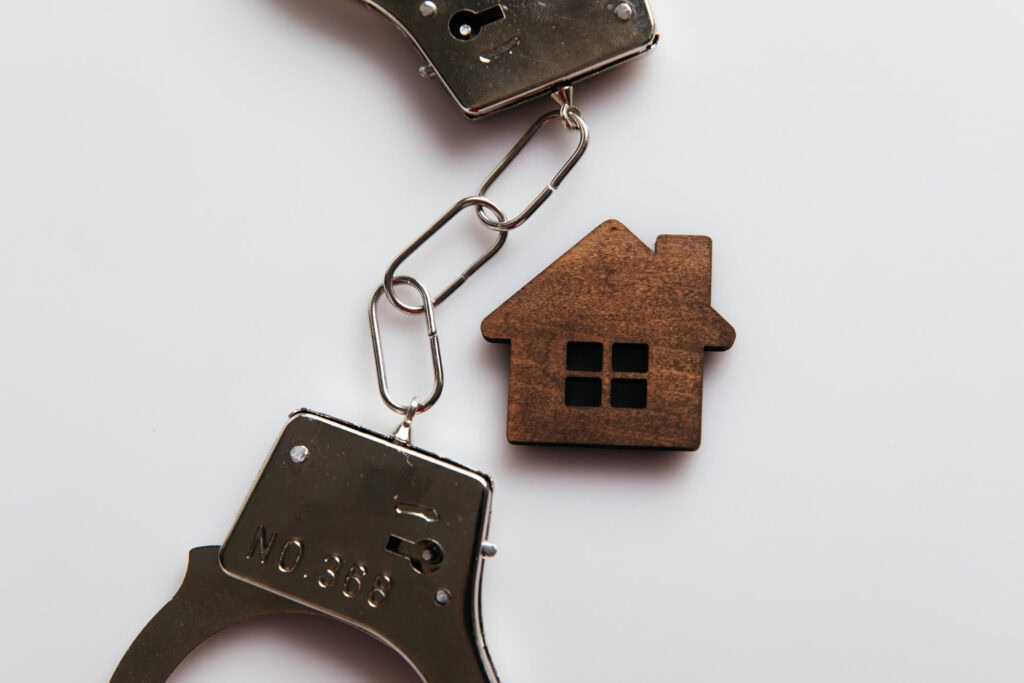Understandably, it’s nerve-wracking to wonder what happens when you get a DUI for the first time in California. You’re not alone in this predicament, as many find themselves in similar circumstances.
Have you contemplated that a conviction for a first-offense DUI might lead to up to six months behind bars? No need to feel overwhelmed! Our detailed guide is designed like a roadmap, taking you through the intricate legal process at each step.
Consequences of a First Offense DUI
A first-offense DUI can result in jail time or probation, license suspension, the requirement of an ignition interlock device, mandatory drug and alcohol counseling or treatment, fines, fees, and increased auto insurance rates.
Jail Time or Probation
Facing a first offense DUI often throws us in the middle of two potential outcomes – jail time or probation. Though not all first-time offenders receive a jail sentence, it’s indeed possible for some individuals based on severity and state laws.
Due to the varied nature of these offenses, the length of incarceration can differ significantly; certain states even mandate mandatory jail terms. Some may find themselves locked away for just one or two days, while others face longer sentences.
On the other hand, many receive probation instead of serving time behind bars.
License Suspension
Facing a DUI charge often results in immediate suspension of your driving license. The period of this suspension typically ranges between three months and two years, depending on the state and specifics of the case.
In extreme circumstances like refusing a chemical test for drugs or alcohol during your arrest in Colorado, you risk having your license revoked entirely for one whole year.
Ignition Interlock Device
An ignition interlock device can be a mandatory requirement after a DUI conviction. As a safety measure, these devices are installed in your vehicle to prevent drunk driving.
Typically, the device requires you to pass a breathalyzer test before your car will start. This ensures that only sober drivers can operate the vehicle, reducing the risk of repeated offenses or accidents on the road.
A six-month installation period is common for most first offense cases.
Drug and Alcohol Counseling or Treatment
Drug and alcohol counseling or treatment are often required as a consequence of a first-offense DUI. Depending on the circumstances surrounding the case, a court may order individuals to participate in a treatment program for their drug or alcohol abuse related to the DUI.
Fines and Fees
When you are looking at what happens when you get a DUI for the first time in California, you can expect to face significant fines and fees when you are convicted of a first-offense DUI. If your blood alcohol level is .15% or higher or there was a minor in the vehicle at the time of arrest, the fines can be even higher.
It’s important to note that these fines are just one aspect of the financial burden that comes with a DUI conviction.
On average, a first-time DUI offense can cost up to $15,000 when you take into account court fees, legal expenses, administrative costs, and other associated fees. So not only will a first-offense DUI impact your driving privileges and potentially land you in jail or probation, but it will also hit you hard in the wallet.
Increased Auto Insurance Rates
Having a DUI on your driving record can have long-lasting effects, including increased auto insurance rates. Insurance companies consider a DUI conviction a major infraction, meaning they may view you as a high-risk driver.
Insurance companies base their rates on risk factors, and having a DUI makes you more likely to file an insurance claim. This increased risk often results in higher premiums. Additionally, finding an insurance policy after being convicted of a DUI can be challenging.
Legal Options After a First Offense DUI
After a first offense DUI, individuals facing charges have several legal options to consider, including diversion programs, plea bargaining, and going to trial.
Diversion Programs
Diversion programs are a potential legal option for first-time DUI offenders.
These programs, such as Florida’s DUI Pretrial Diversion (DUI PTD), offer an alternative to traditional criminal prosecution. Participants in diversion programs may be required to undergo alcohol and drug evaluations and complete recommended rehabilitation programs.
The successful completion of these requirements can result in the dismissal of the DUI charge, providing a way for first-time offenders to avoid a conviction on their record.
Plea Bargaining
One legal option after being charged with a first offense DUI is plea bargaining.
DUI attorneys often negotiate plea bargains to reduce drunk driving charges to lesser offenses. Plea bargaining is common in drunk driving cases and many other criminal cases.
It involves negotiating with the prosecution to have the charge reduced in exchange for pleading guilty or no contest.
This can result in less severe penalties and consequences compared to going to trial and potentially being convicted of the original charge.
Going to Trial
If you’ve been charged with a first-offense DUI, going to trial is one legal option available to you.
During the trial process, you will have the opportunity to present your case and defend yourself against the charges. The outcome of the trial will be determined by a judge or jury, who will consider evidence presented by both sides.
In some cases, imprisonment may be at the discretion of the court and could be determined during the trial. Ultimately, going to trial provides an opportunity for you to fight against a conviction and potentially minimize or avoid certain penalties associated with a first-offense DUI.
What To Expect When Facing a First-Offense DUI
When facing a first-offense DUI, it’s important to understand the potential consequences and what you can expect throughout the process. If convicted, you may face fines, license suspension, and even jail time.
The severity of these punishments can vary depending on factors such as your blood alcohol content (BAC) at the time of arrest and any previous convictions. It’s also worth noting that refusing to take a breathalyzer or field sobriety test can result in additional penalties.
How To Minimize the Impact of a First-Offense DUI
To minimize the impact of a first-offense DUI, seeking legal representation from an experienced criminal defense lawyer is crucial. They can provide guidance and potentially help lessen the consequences of your case.
Additionally, understanding the potential penalties and taking steps to address them can make a difference. This may include attending drug and alcohol counseling or treatment programs, complying with any court-mandated requirements such as installing an ignition interlock device in your vehicle and maintaining sobriety during this process.
Conclusion
In conclusion, what happens when you get a DUI for the first-time in California is serious. You may face jail time or probation, license suspension, and fines. It is important to understand your legal options and consider seeking the help of a qualified DUI attorney.
If you are looking for a reliable and experienced lawyer who can assist you with your first-offense DUI case, contact David L. Faulkner today. He will aggressively defend your rights and fight for you to get the best possible outcome.










